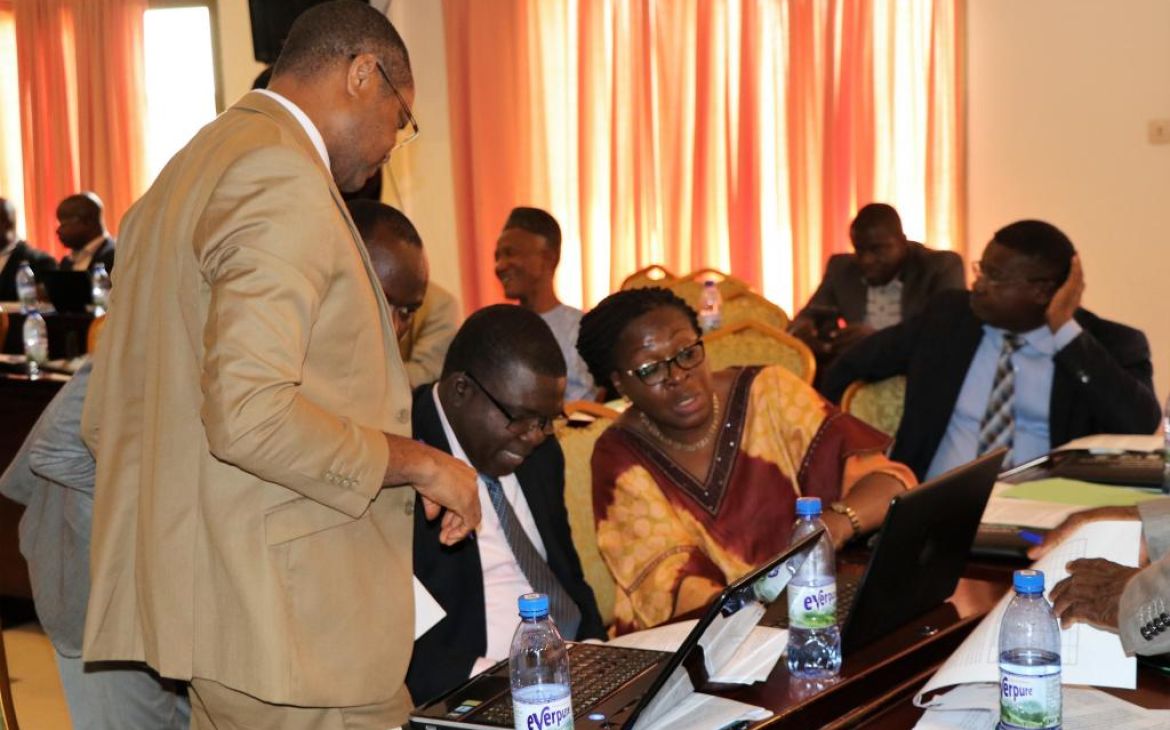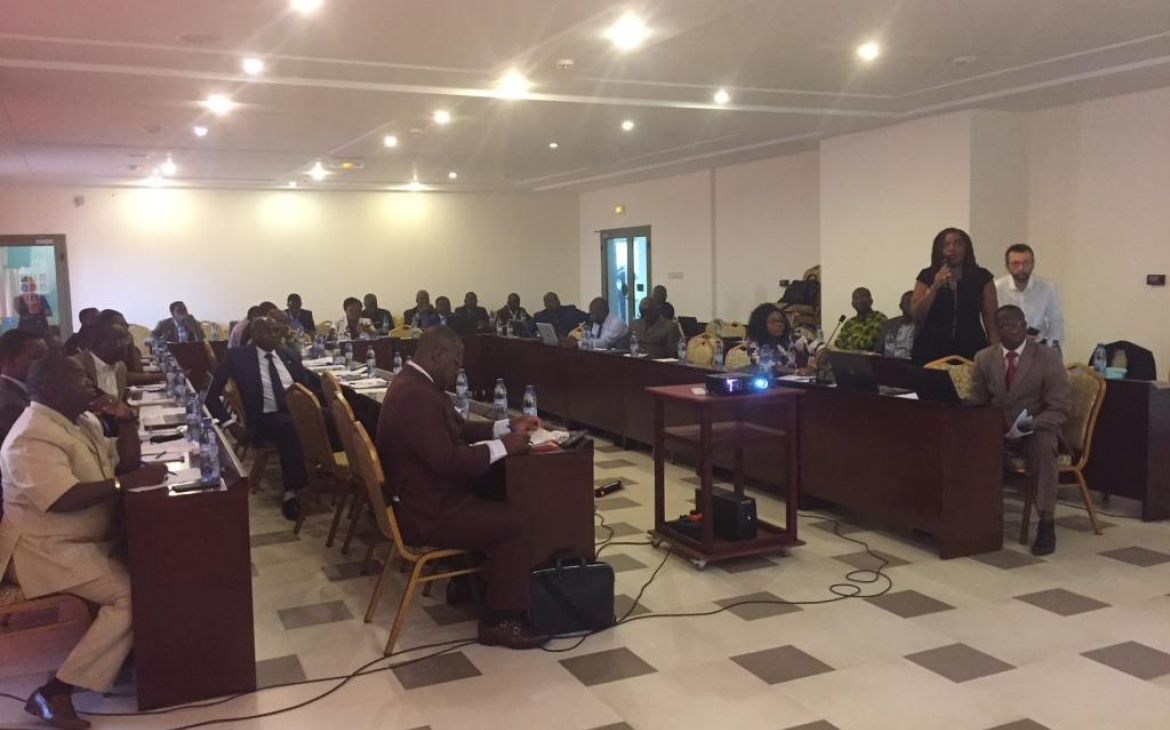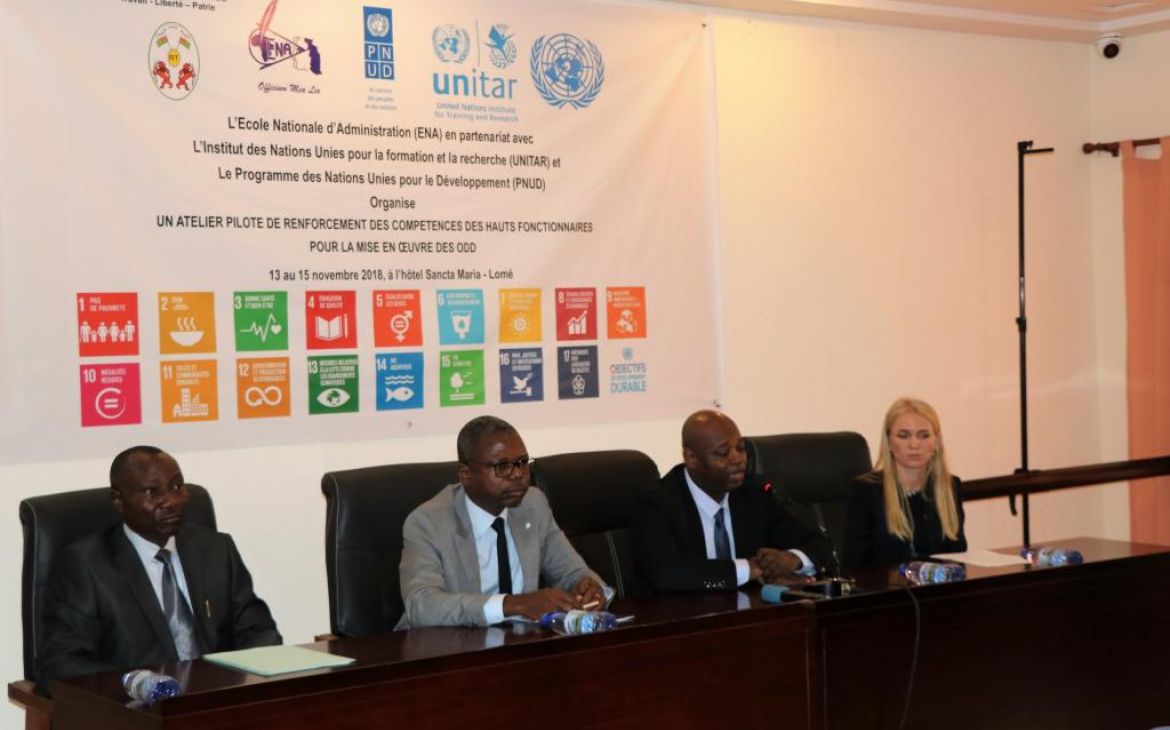On 13-15 November 2018, the Togolese Public Administration School (ENA), UNITAR and UNDP held a national workshop aimed at strengthening the capacities of senior civil servants to lead the implementation of the 2030 Agenda and SDGs. This was the first national-level pilot of UNITAR’s toolkit “Policy cycle, integrated approaches and SDGs” targeted towards African Least Developed Countries (LDCs).
The three-day workshop commenced with opening speeches by Mr. Djifa K. Adjeoda, Director-General of ENA, Ms. Elena Proden, UNITAR, M. Damien Mama, UN Resident Coordinator in Togo, and Mr. Atissim Assih, Secretary-General of the Ministry of Public Administration. It has brought together Secretary-Generals from across various Government Ministries as well as several planning officers and the faculty of the Public Administration School or in total more than 50 participants.
The workshop was an occasion to pilot-test training materials from the toolkit developed by UNITAR in collaboration with other UN agencies and research centers in a national context. Some of the materials and methodologies had been previously used in a work-in-progress format in the context of regional events in 2017.
The “Policy cycle, integrated approaches and SDGs” toolkit is a collection of PowerPoints, exercises and manuals organized in 10 modules complemented by needs assessment and evaluation questionnaires needed for the organization of a successful training event. The toolkit uses the concept of the policy cycle to help identify bottlenecks preventing an effective alignment between planning, budgeting, monitoring and evaluation processes and discuss challenges faced by many African LDCs related to the transition to a programme budget and results-oriented implementation of public policies and programmes.
The toolkit aims to help strengthen 5 core competencies in public service, i.e., systemic, anticipatory, normative, strategic and interpersonal, with a view to promoting key SDG principles such as an integrated approach to decision-making and the “No One Left Behind” principle. Notably, the toolkit introduces the key concepts of a systems theory to improve the understanding of the dynamic nature of interlinkages between various dimensions and areas of the SDGs and identify “leverage points” or accelerators to help prioritize and ensure greatest impact. It also leverages the work of the UN system, OHCHR and UNDP on inequalities, discrimination and human rights-based approach to explain the meaning of the LNOB principle, recognize related data needs, introduce data collection principles and propose approaches to policy design.
The toolkit is intended for African countries, with a special emphasis on LDCs, and is available in French and English.
The workshop is facilitated by a group of national and international experts. National experts comprised the representatives of the Public Administration Ministry and School Mr. Assih, Mr. Konlani, representatives of the Planning Ministry Mr. Bamba, Mr. Meatchi, Mr. Paneto, as well as representatives of the National Statistical Institute INSEED and Association of Local Authorities. Among international experts having joined the workshop were Mr. Francois Fortier, Inter-regional Adviser and an integrated planning expert from the Division for Sustainable Development Goals, UN Department of Economic and Social Affairs (UNDESA); Ms. Mireille Linjouom, Regional Economic Advisor and an expert on financing strategies and programme budgeting from the UNDP Regional Bureau for Western and Central Africa, and Ms. Elena Proden, Specialist and an expert on SDG mainstreaming at the Strategic Implementation of the 2030 Agenda Unit, Division for Satellite Analysis and Applied Research, UNITAR.
You may access the toolkit “Policy cycle, integrated approaches and SDGs” for African LDCs here.




